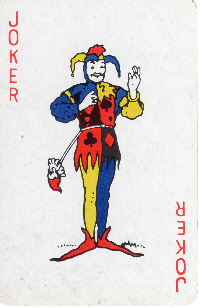SUNDAY, 16 NOVEMBER 2014
I should ruthlessly crush any ambitions I might have to start and manage my own business.
Why?
It’s for my own good.
A business is like a marriage, or rather, it’s like raising a child. You have to think about your business every day. You have to be on call seven days a week.
You also have to constantly work at it to make your business grow. And every now and then you have to think about what you can do to grab a bigger slice of the pie from the competition.
I sometimes think I can start a business, and then just employ a good manager.
A good manager is important for any business, there’s no doubt about that. But a manager usually executes what the owner decides. The owner determines policy. The owner has to decide in what direction the business will go. The owner is the one who should have vision; otherwise, the business will stagnate.
The owner ultimately needs a good team to execute his vision, but none of his valuable employees can do his work for him. If he doesn’t lead his own venture, it will end up on the rocks, and then all his valuable team members, along with the manager, will desert him one by one anyways.
The question I therefore ask myself is whether or not I can devote myself to my own business – not only at the beginning, when everything is new and exciting, but six months later, and five years later.
If you find that you actually cannot fully devote yourself to a business – and with business I mean a commercial enterprise that sells a product or service to a market over an extended period of time, probably with the paid cooperation of other people, you shouldn’t continue wasting your own time, the time of your target market, and the time of people who work for or with you.
Unless you inherited millions, married into wealth, or won the lottery, you need to make money to exist. You can take the risk of selling your time to other people, to companies, or to institutions. Or you can start your own business.
If you don’t want to sell your time to the highest bidder, and you find that you, like me, shouldn’t venture into the marriage or guardianship of your own business, you have no choice but to find something else. And in case you’re wondering: it’s never easy to find that something else, but it is easier now than ever before.
______________________
 you scream. “How dare you? I was building a house – a home! Does that mean nothing to you? Does it mean nothing to you that I’ve been working on this house for the past several months?!”
you scream. “How dare you? I was building a house – a home! Does that mean nothing to you? Does it mean nothing to you that I’ve been working on this house for the past several months?!”